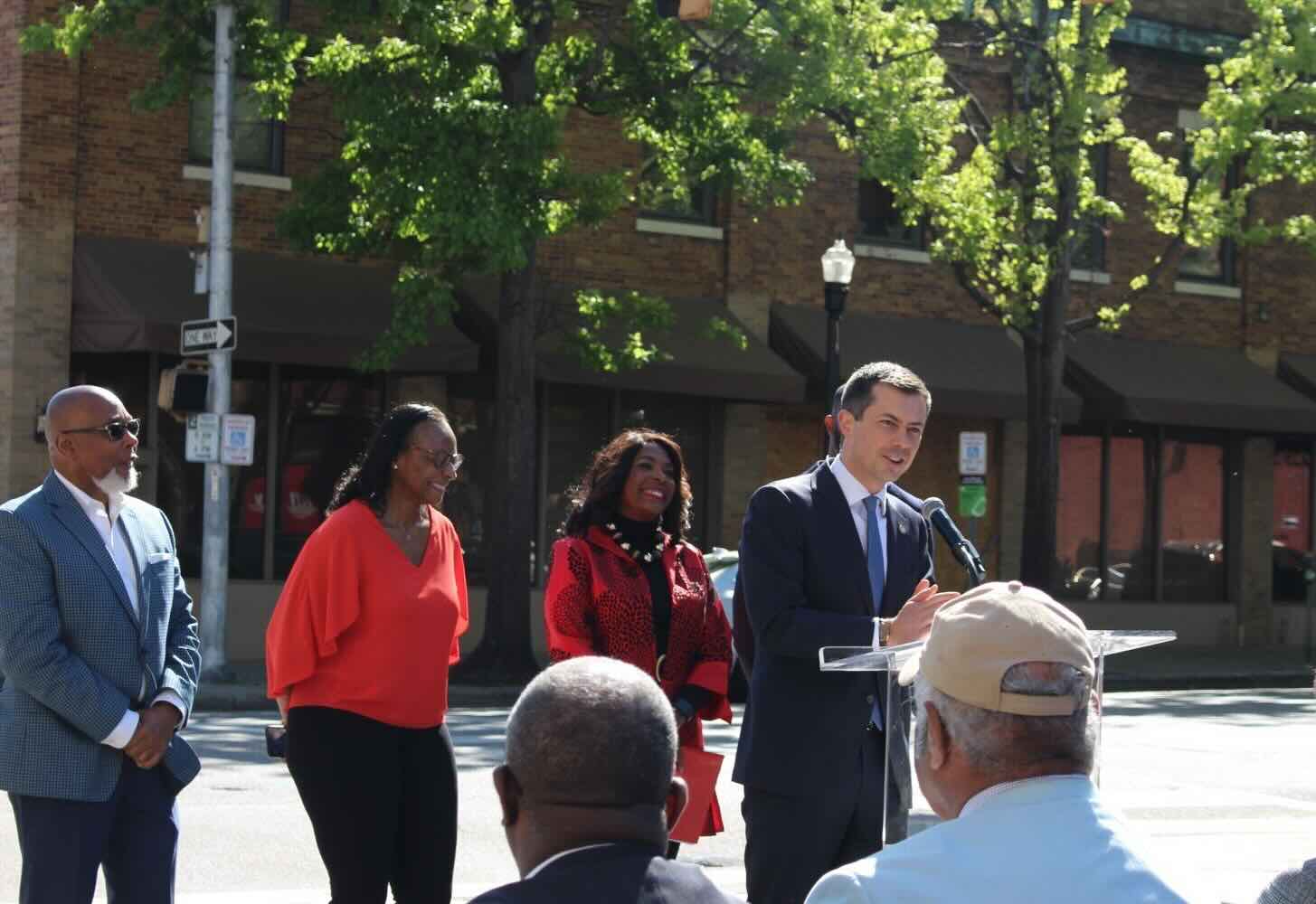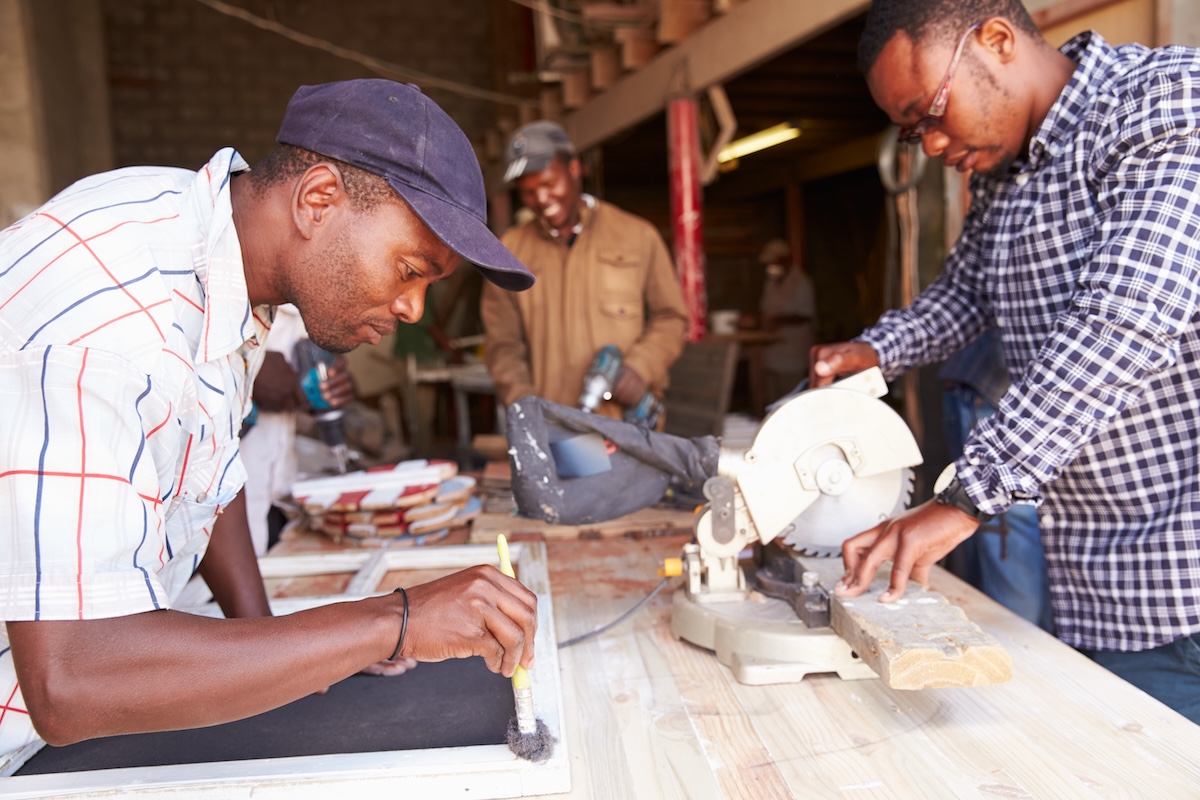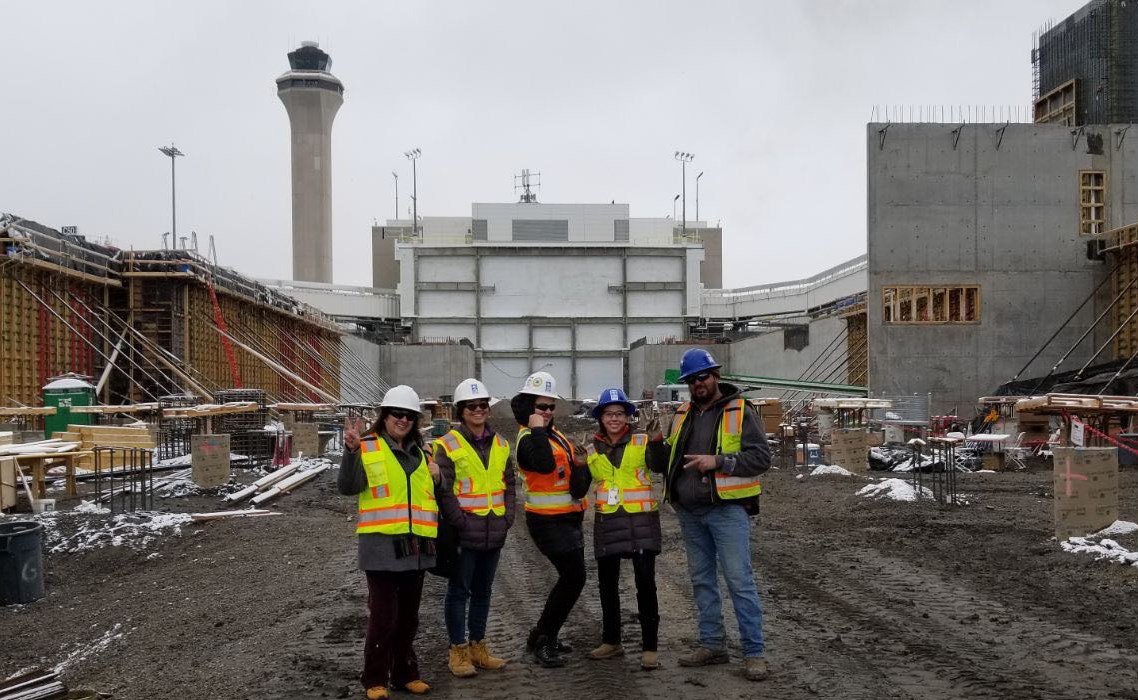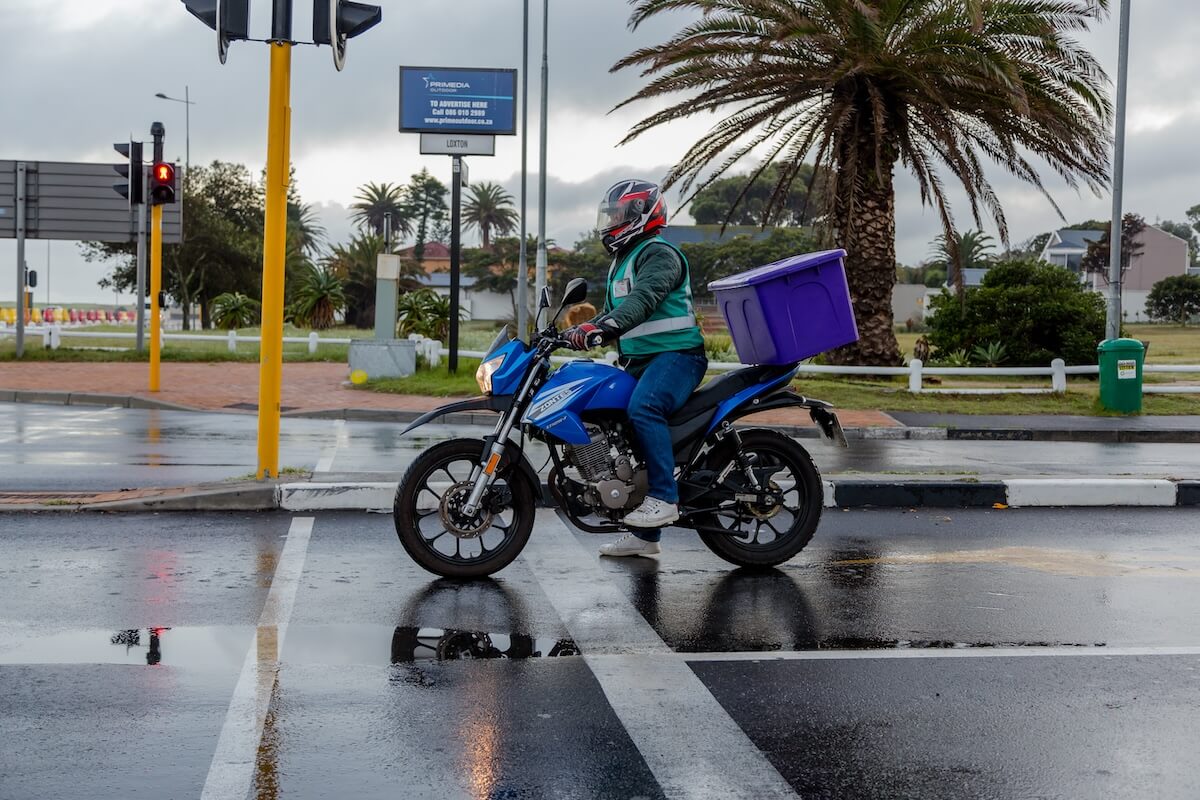ImpactAlpha, Dec. 20 – Shay Pink didn’t pull her punches earlier this year when she met Amy King, the CEO of Seattle-based Pallet, which makes specially designed, easy-to-assemble cabins as a short-term intervention for people experiencing homelessness.
Shay was one of the main organizers among residents that had moved as a group from an informal encampment behind a nearby Walgreen’s to a community of Pallet’s living units in Oakland, Calif., on a narrow strip of land between a freeway and a postal service distribution center.
“At first it’s like a prison cell,” Pink told King and other visitors as she gave a tour of her 64-square foot Pallet shed, which contained two bunks, shelving, electric outlets and even an air conditioner. “But now it’s a home.”
Pallet’s modular units, including can provide private, secure living units that can be assembled in a day. Pink, who said she had spent 19 of her 42 years in prison and ended up homeless the last time she got out, is testament to the proposition that successful reintegration of people experiencing homelessness depends on the right blend of basic rights, economic viability, effective policy, supportive services, financing and, crucially, self-organizing among the residents and leaders like Pink.
About 80% of Pallet’s employees are themselves exiting incarceration, homelessness or addiction.
“Pallet changed my life,” said Pink, “I love my Pallet home. They’re not sheds, they’re tiny homes.”
Sustainable reintegration
King was similarly blunt about the challenges of tackling the challenges of homelessness when she spoke at Gratitude Railroad, a network of impact investors who gathered last month at Sundance Mountain Resort in Utah. Gratitude’s Partners Fund and several members invested directly in Pallet, which raised $15 million in March in a round led by DBL Partners and Citi Impact Fund.
“I’m going to say something that most people don’t agree with, which is that housing is not the solution to homelessness,” King told the Gratitude gathering. “I can tell you right now that providing just a house does not in any way, shape or form solve their problem or address the root cause issue of homelessness.”
Gratitude Railroad was founded in 2013 by hedge fund veteran Howard Fischer and private-equity investor and entrepreneur Eric Jacobsen after they attended the Harvard Advanced Leadership Initiative. In recent years, the network has made efforts to attract more women, younger members and to sharpen its focus on diversity and inclusion. At the start of this year, Gratitude launched an Inclusive Capital Fund, an impact fund-of-funds to help overcome the institutional and implicit barriers that block white female and managers of color from raising capital.
Also presenting at the Gratitude’s gathering this year was Henry Wilde, CEO of Acelero Learning, which provides curriculum and operational support to help Head Start programs provide high-quality early childhood education (for a deep dive on Acelero’s model and early challenges, see “Acelero Learning: Kids Get a Head Start, but Investors Must Wait”). In October, Acelero raised an undisclosed amount of financing from Builders Fund, the BlackRock Impact Opportunities Fund and other investors, including Gratitude Railroad.
Lakota Vogel, who heads the Four Bands Community Fund, a community development financial institution in South Dakota, talked about the challenges of economic development on the Cheyenne River Sioux Reservation.
Chicago Beyond’s Liz Dozier shared her experience as principal at Fenger High School in the Roseland neighborhood on Chicago’s far south side. Chicago Beyond has invested more than $40 million in community initiatives and local leaders working for a more equitable future for the city’s youths.
System contributors
Pallet works with cities that are under pressure to find new approaches to homelessness, a humanitarian crisis in many cities in California and around the U.S. where proliferating encampments of tents, cars and RVs mean deteriorating health outcomes and fraying community relations.
King said Pallet insists that cities that want to buy its structures meet five “dignity standards,” including hygiene, food security, transportation, security and services. “If they cannot meet these or prove they will meet these, we will pass on the sale, which is kind of crazy for a retail company,” King says. “But it’s really important to us to make sure that our product is used as intended.”
King said Pallet is committed to reintegration as an employer as well, with living wages, full benefit packages and financial education and mental health support, “all the things that they need to succeed really changes the trajectory for them, but it also changes the trajectory for me and for you and everyone else.”
Many of Pallet’s employees were previously “system-dependent,” King said.
“They were system users. Today, they are taxpayers. They are system-contributors. They are consumers. They are buying your products at full price,” she said.
“If we stop thinking about people who need our help as someone who’s a system-user, and instead think about how we can turn that person into a system benefactor who’s contributing to those systems, we can actually change our economic outlook.”











